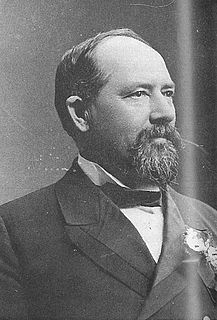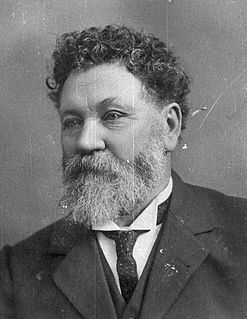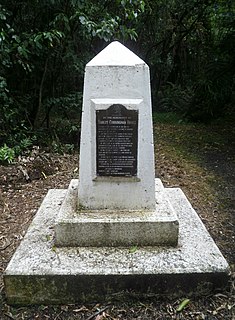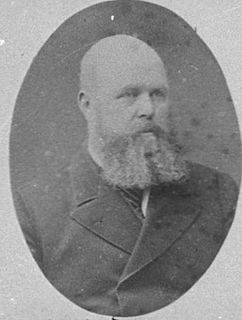| New Zealand Parliament | ||||
| Years | Term | Electorate | Party | |
| 1891 –1893 | 11th | Egmont | Independent | |
| 1893 –1896 | 12th | Egmont | Independent | |
| 1896 –1899 | 13th | Hawera | Independent | |
| 1899 –1902 | 14th | Hawera | Independent | |
Felix McGuire (1847 – 6 April 1915) was an independent conservative Member of Parliament in New Zealand.
A member of parliament (MP) is the representative of the voters to a parliament. In many countries with bicameral parliaments, this category includes specifically members of the lower house, as upper houses often have a different title. Member of Congress is an equivalent term in other jurisdictions.
McGuire unsuccessfully contested the Egmont electorate in the 1887 election and 1890 election. [1]
Egmont is a former New Zealand electorate, in south Taranaki. It existed from 1871 to 1978.

The New Zealand general election of 1887 was held on 26 September to elect 95 MPs to the tenth session of the New Zealand Parliament. The Māori vote was held on 7 September. 175,410 votes were cast. In 5 seats there was only one candidate.
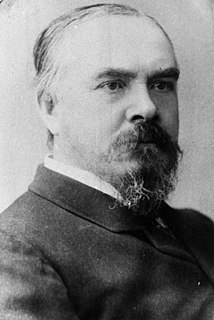
The New Zealand general election of 1890 was one of New Zealand's most significant. It marked the beginning of party politics in New Zealand with the formation of the Liberal Government, which was to enact major welfare, labour and electoral reforms, including giving the vote to women.
He was elected to the Egmont electorate in a 1891 by-election after the resignation of Harry Atkinson, and represented it until the end of the 12th Parliament in 1896. He successfully contested the Hawera electorate in the 1896 general election and served until he was defeated in the 1902 general election. [2] He once again stood (unsuccessfully) for Hawera in 1905. [3]

Sir Harry Albert Atkinson served as the tenth Premier of New Zealand on four separate occasions in the late 19th century, and was Colonial Treasurer for a total of ten years. He was responsible for guiding the country during a time of economic depression, and was known as a cautious and prudent manager of government finances, though distrusted for some radical policies such as his 1882 National Insurance (welfare) scheme and leasehold land schemes. He also participated in the formation of voluntary military units to fight in the New Zealand Wars, and was noted for his strong belief in the need for seizure of Māori land.

The 12th New Zealand Parliament was a term of the New Zealand Parliament. It was elected at the 1893 general election in November and December of that year.
Hawera was a parliamentary electorate in the South Taranaki District of New Zealand from 1896 to 1908. It was represented by two Members of Parliament over the four parliamentary terms of its existence.
McGuire died on 6 April 1915 at his home in the Auckland suburb of Epsom, and was buried in Waikaraka Cemetery. [4]
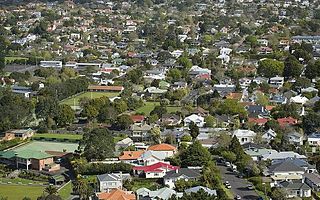
Epsom is an exclusive, affluent suburb of Auckland, New Zealand. It is located in the centre of the Auckland isthmus between Mount Eden and One Tree Hill, south of Newmarket, and five km south of Auckland CBD.


